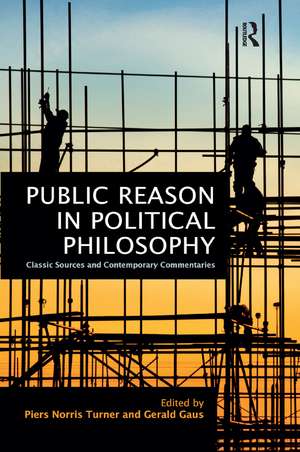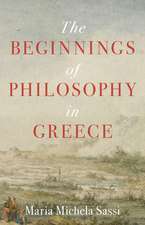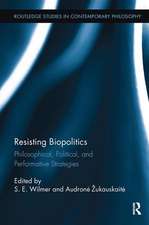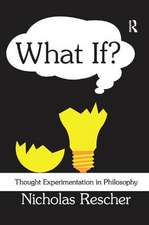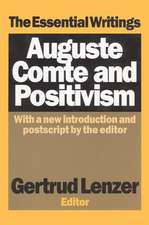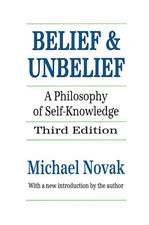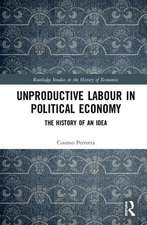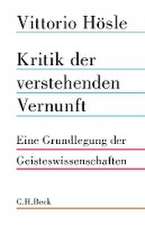Public Reason in Political Philosophy: Classic Sources and Contemporary Commentaries
Editat de Piers Norris Turner, Gerald Gausen Limba Engleză Paperback – 10 dec 2019
The distinctive selections from the great social contract theorists in this volume emphasize the pervasive theme of intractable disagreement and the need for public justification. New essays by leading scholars then put the historical work in context and provide a focus of debate and discussion. They also explore how the search for public reason has informed a wider body of modern political theory—in the work of Hume, Hegel, Bentham, and Mill—sometimes in surprising ways. The idea of public reason is revealed as an overarching theme in modern political philosophy—one very much needed today.
| Toate formatele și edițiile | Preț | Express |
|---|---|---|
| Paperback (1) | 389.66 lei 6-8 săpt. | |
| Taylor & Francis – 10 dec 2019 | 389.66 lei 6-8 săpt. | |
| Hardback (1) | 1008.97 lei 6-8 săpt. | |
| Taylor & Francis – 21 aug 2017 | 1008.97 lei 6-8 săpt. |
Preț: 389.66 lei
Nou
Puncte Express: 584
Preț estimativ în valută:
74.56€ • 78.06$ • 61.69£
74.56€ • 78.06$ • 61.69£
Carte tipărită la comandă
Livrare economică 08-22 aprilie
Preluare comenzi: 021 569.72.76
Specificații
ISBN-13: 9780367867911
ISBN-10: 0367867915
Pagini: 412
Dimensiuni: 152 x 229 x 21 mm
Greutate: 0.45 kg
Ediția:1
Editura: Taylor & Francis
Colecția Routledge
Locul publicării:Oxford, United Kingdom
ISBN-10: 0367867915
Pagini: 412
Dimensiuni: 152 x 229 x 21 mm
Greutate: 0.45 kg
Ediția:1
Editura: Taylor & Francis
Colecția Routledge
Locul publicării:Oxford, United Kingdom
Cuprins
Table of Contents
Introduction
PART 1: PUBLIC REASON IN SOCIAL CONTRACT THEORY
Hobbes from Leviathan
Critical Essay: Sharon A. Lloyd, Public Reason in Hobbes
Locke from Second Treatise of Government,
A Letter Concerning Toleration
Critical Essay: Gerald F. Gaus, Locke’s Liberal Theory of Public Reason
Rousseau from A Discourse on Political Economy,
The Social Contract
Critical Essay: Christopher Bertram, Rousseau on Public Reason
Kant from The Science of Right,
The Principles of Political Right Considered in Common with the Relation of Theory to Practice in the Right of the State,
Perpetual Peace,
What is Enlightenment?
&
Introduction
PART 1: PUBLIC REASON IN SOCIAL CONTRACT THEORY
Hobbes from Leviathan
Critical Essay: Sharon A. Lloyd, Public Reason in Hobbes
Locke from Second Treatise of Government,
A Letter Concerning Toleration
Critical Essay: Gerald F. Gaus, Locke’s Liberal Theory of Public Reason
Rousseau from A Discourse on Political Economy,
The Social Contract
Critical Essay: Christopher Bertram, Rousseau on Public Reason
Kant from The Science of Right,
The Principles of Political Right Considered in Common with the Relation of Theory to Practice in the Right of the State,
Perpetual Peace,
What is Enlightenment?
&
Notă biografică
Piers Norris Turner is Associate Professor of Philosophy and (by courtesy) Political Science at Ohio State University. A co-editor of Karl Popper, After The Open Society: Selected Social and Political Writings (2008), his articles on John Stuart Mill’s moral and political philosophy have appeared in a number of leading journals, including Ethics and the Journal of the History of Philosophy.
Gerald Gaus is the James E. Rogers Professor of Philosophy at the University of Arizona. Among his books are The Order of Public Reason (2011), On Philosophy, Politics and Economics (2008), Justificatory Liberalism (1996), and Value and Justification (1990). His most recent book is The Tyranny of the Ideal (2016). He was a founding editor of the journal Politics, Philosophy, and Economics and, with Fred D’Agostino, edited The Routledge Companion to Social and Political Philosophy (2013).
Gerald Gaus is the James E. Rogers Professor of Philosophy at the University of Arizona. Among his books are The Order of Public Reason (2011), On Philosophy, Politics and Economics (2008), Justificatory Liberalism (1996), and Value and Justification (1990). His most recent book is The Tyranny of the Ideal (2016). He was a founding editor of the journal Politics, Philosophy, and Economics and, with Fred D’Agostino, edited The Routledge Companion to Social and Political Philosophy (2013).
Recenzii
"A very welcome overview on one of the most important topics in political philosophy from the past to its vibrant future. A valuable addition that does well to put public reason in historical context – and highlight its continuing urgency."
--Thom Brooks, Durham Law School
"Each of the chapters on individual philosophers is written by a top-flight scholar in the work of that particular figure. While written in a manner that will make them accessible to advanced undergraduates, these chapters will be of interest to specialists."
--Dale E. Miller, Old Dominion University
"Questions about ‘public reason’ did not begin with John Rawls. As the historical selections in this volume demonstrate, the problem of dealing with deep moral and religious disagreement has constituted a major theme of modern political philosophy since the 17th century. The contemporary commentaries on those selections do an excellent job of situating them in the context of current debates."
--Matt Zwolinski, University of San Diego
--Thom Brooks, Durham Law School
"Each of the chapters on individual philosophers is written by a top-flight scholar in the work of that particular figure. While written in a manner that will make them accessible to advanced undergraduates, these chapters will be of interest to specialists."
--Dale E. Miller, Old Dominion University
"Questions about ‘public reason’ did not begin with John Rawls. As the historical selections in this volume demonstrate, the problem of dealing with deep moral and religious disagreement has constituted a major theme of modern political philosophy since the 17th century. The contemporary commentaries on those selections do an excellent job of situating them in the context of current debates."
--Matt Zwolinski, University of San Diego
Descriere
This volume argues that modern political theory can be fruitfully organized around the evolution of the idea of public reason.
